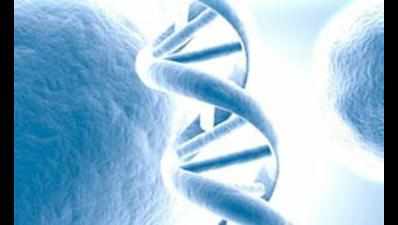- News
- City News
- mysuru News
- IVF EMBRYOS - Team develops tech to predict DNA defects
Trending
This story is from November 18, 2016
IVF EMBRYOS - Team develops tech to predict DNA defects
Manipal University research received a shot in the arm when a team of researchers led by Dr Satish Adiga and Dr Hanudatta Atreya of the Indian Institute of Science (IISc) Bengaluru, identified a way to predict DNA defects in IVF-derived early embryos using non-invasive technology .

(Representative image)
MANIPAL: Manipal University research received a shot in the arm when a team of researchers led by Dr Satish Adiga and Dr Hanudatta Atreya of the Indian Institute of Science (IISc) Bengaluru, identified a way to predict DNA defects in IVF-derived early embryos using non-invasive technology.
Scientific Reports, a British journal from Nature Group, published this innovative finding on Thursday. Last week, the university research team dis covered the biomolecules that impede surveillance against infection and promote complications in diabetes.
In this study , the researchers induced DNA lesions, experimentally , in mouse embryos and observed stark changes in embryo metabolism with high-level of DNA damage.The nuclear magnetic resonance (NMR) technology was used to detect metabolic changes in the surrounding growth medium of the embryos. The researchers could detect this change 24 hours before the onset of cell death in the embryos. This may prove to be extremely advantageous when extrapolated to the clinical IVF set up. The team included Fiona D'Sou za, Shubhashree Uppangala, Guruprasad Kalthur and scientists from IISC and National Centre for Biological Sciences (NCBS), Bengaluru.
Dr H Vinod Bhat, vice-chancellor, Manipal University , said: “This is a significant step which will benefit infertile couples in improving their IVF success“.“The study shows how powerful the small molecule metabolites are when it comes to probing changes happening at a macroscopic or cellular level. This opens up new avenues to probe the response of embryos to various external stimuli,“ said Dr Atreya who is involved in developing biomarker.
Scientific Reports, a British journal from Nature Group, published this innovative finding on Thursday. Last week, the university research team dis covered the biomolecules that impede surveillance against infection and promote complications in diabetes.
In this study , the researchers induced DNA lesions, experimentally , in mouse embryos and observed stark changes in embryo metabolism with high-level of DNA damage.The nuclear magnetic resonance (NMR) technology was used to detect metabolic changes in the surrounding growth medium of the embryos. The researchers could detect this change 24 hours before the onset of cell death in the embryos. This may prove to be extremely advantageous when extrapolated to the clinical IVF set up. The team included Fiona D'Sou za, Shubhashree Uppangala, Guruprasad Kalthur and scientists from IISC and National Centre for Biological Sciences (NCBS), Bengaluru.
Dr H Vinod Bhat, vice-chancellor, Manipal University , said: “This is a significant step which will benefit infertile couples in improving their IVF success“.“The study shows how powerful the small molecule metabolites are when it comes to probing changes happening at a macroscopic or cellular level. This opens up new avenues to probe the response of embryos to various external stimuli,“ said Dr Atreya who is involved in developing biomarker.
The research work is one of the first reports that document how embryos change their metabolism in response to DNA damage in a controlled set-up observed in a mouse model. “In 2012, our team was the first in the country to establish this technology to achieve better implantation rates in infertile patients,“ said Dr Poornima Baliga, dean of Kasturba Medical College, Manipal.
End of Article
FOLLOW US ON SOCIAL MEDIA










